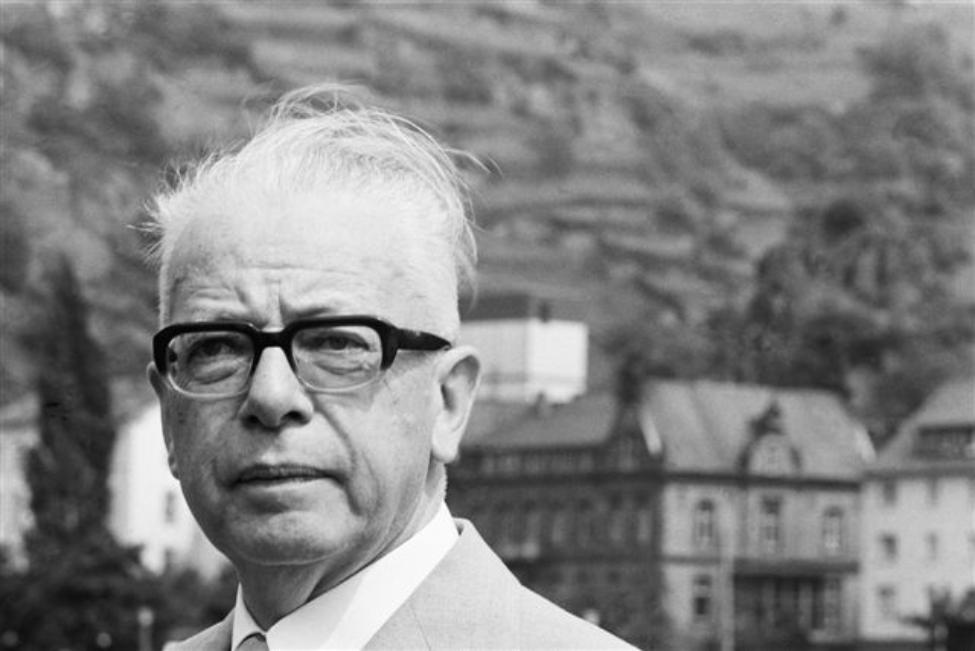| Date | Biography |
|---|---|
| 1899 | Born on 23 July in Schwelm (Westphalia) |
| 1909-1917 | Attended secondary school in Essen |
| 1917-1918 | Served as a soldier |
| 1919-1923 | Read law, economics and history in Münster, Marburg, Munich, Göttingen and Berlin. Was an active member of the student groups of the Deutsche Demokratische Partei (German Democratic Party) |
| 1920 | Briefly interned by supporters of Kapp (Kapp Putsch) |
| 1921 | Completed a doctorate in politics in Marburg |
| 1922 | Passed first state law examination |
| 1926 | Practised law in Essen |
| 1929 | Completed a doctorate in law in Münster |
| 1928-1936 | Practised law and was a legal adviser and authorised officer at the Rheinische Stahlwerke (Rhenish Steel Works) in Essen |
| 1936-1949 | Member of the board of directors of the Rheinische Stahlwerke Essen |
| 1930 | Joined the Christlich-Sozialer Volksdienst (conservative Protestant party) |
| 1923-1939 | Lecturer in civil and commercial law at the University of Cologne |
| from 1933 | Member of the Confessing Church. Participated in its synods, including the Barmer Synod held in May 1934 ("Barmer Declaration"). Participated in the production and distribution of pamphlets of the Confessing Church |
| 1936-1950 | Chairman of the YMCA in Essen |
| 1936 | Invitation to join the board of directors of the Rheinisch-Westfälische Kohlensyndikat (Rhenish-Westphalian Coal Syndicate) was withdrawn due to Heinemann's refusal to end involvement with the Confessing Church |
| 1945-1967 | Member of the Council of the Evangelical Church in Germany constituted in Treysa |
| 1945 | "Stuttgart Declaration" of the Council of the Evangelical Church in Germany |
| 1945-1962 | Leading member of the Evangelical Church in the Rhineland |
| 1946-1949 | Mayor of Essen |
| 1947-1950 | Member of the parliament of Land North-Rhine/Westphalia |
| 1947-1948 | Minister of Justice of Land North-Rhine/Westphalia |
| 1948 | Assembly of the World Council of Churches in Amsterdam |
| 1948-1961 | Member of the Commission of the Churches on International Affairs of the World Council of Churches |
| 1948 | President of the constituent assembly of the churches in Eisenach (founding of the Evangelical Church in Germany) |
| 1949-1955 | Head of the Synod of the Evangelical Church in Germany |
| 1949 | Involved in the constitution of the Deutsche Evangelische Kirchentag (German Protestant Convention) |
| 1949 | Minister of the Interior of the first Federal Government under Konrad Adenauer |
| 1950 | Stepped down as Minister of the Interior for political reasons |
| 1951 | Founding of the Notgemeinschaft für den Frieden Europas (emergency association for peace in Europe) |
| 1952 | Resigned from the CDU |
| 1952 | Co-founded the All-German People's Party (Gesamtdeutsche Volkspartei) |
| 1954 | Visited the Soviet Union at the invitation of the Patriarch of the Russian Orthodox Church |
| 1954 | Assembly of the World Council of Churches in Evanston |
| 1957 | Dissolution of the All-German People's Party - joined the Social Democratic Party of Germany (SPD) |
| 1957 | Member of the German Bundestag |
| 1958 | Member of the SPD Federal Executive Committee |
| 1961 | Assembly of the World Council of Churches in New Delhi |
| 1966-March 1969 | Federal Minister of Justice in the Kiesinger/Brandt Government |
| 1969-1974 | Federal President |
| 1976 | Gustav Heinemann died on 7 July |
Gustav Heinemann was Protestant. He married Hilda Ordemann from Bremen in 1926. They had four children.


